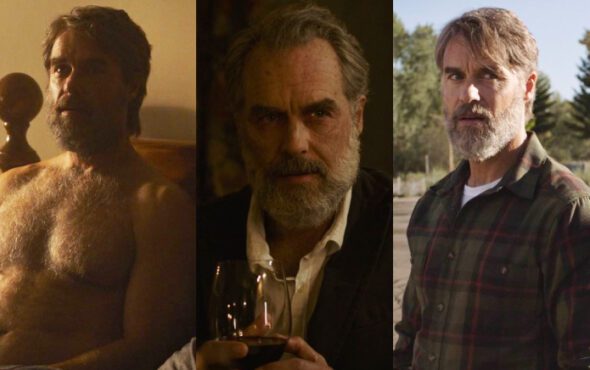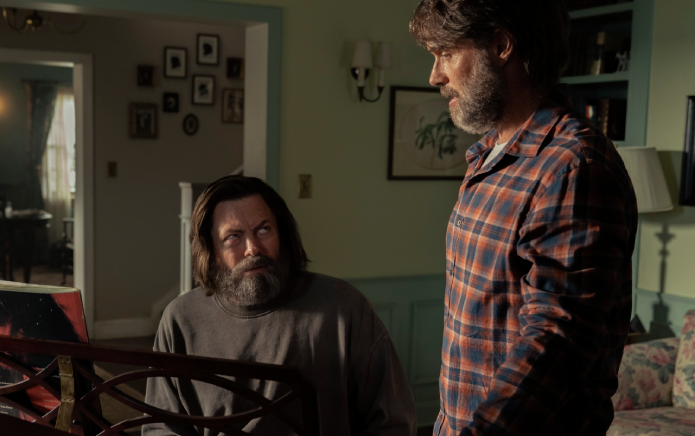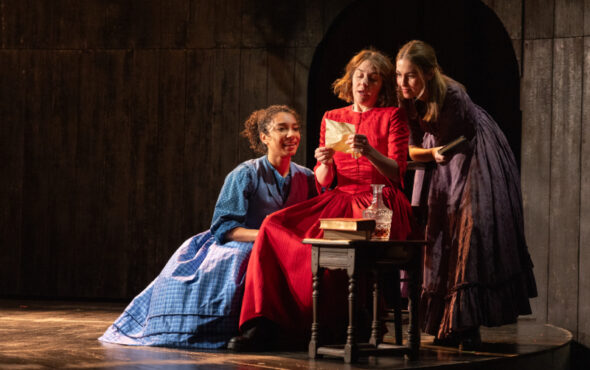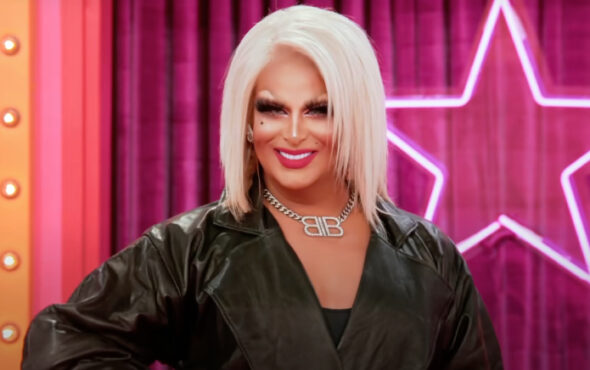
Spoilers ahead for the third episode of The Last of Us.
Murray Bartlett has revealed how his partner reacted to his performance in The Last of Us.
In the third episode of HBO’s post-apocalyptic drama, based on the best-selling game of the same name, the narrative shifts from series protagonists Joel (Pedro Pascal) and Ellie (Bella Ramsey) to tell the beautiful love story between Bartlett’s character Frank and paranoid survivalist Bill (Nick Offerman).
Titled ‘Long Long Time’ after the Linda Ronstadt classic, the episode follows the couple over two decades as they fall in love, protect their Lincoln home from infected people and raiders and strike a partnership with Joel and Tess (Anna Torv).
In their later years, a terminally ill Frank asks Bill to euthanise him. Offerman’s character subverts the harmful trope of equating homosexuality with tragedy, however, as he lethally doses both of their wine glasses, saying: “This isn’t the tragic suicide at the end of the play.”
The episode received universal critical acclaim – with praise aimed at Bartlett and Offerman’s performances, Craig Mazin’s script and Peter Hoar’s direction – and has since been praised as one of the best episodes of television ever broadcast.
Bartlett revealed that his partner was “really affected” by his performance in a recent roundtable interview with The Independent.
“He turned to me at the end and was like, ‘I don’t want you to get sick,”” the actor laughed. “So he really internalised it and obviously had trouble separating with the fact that he was watching me in a TV show, which I think is a good sign.
“Not a good sign about me possibly getting sick as an old man but the integrity of the work was powerful for him.”
In his interview with GAY TIMES, Bartlett said Long Long Time is “beautifully surprising” because of how “unexpected” it is in genres that have historically been dominated by cis-het characters and narratives.

“Not only that, it’s not a stereotypical queer relationship. The relationship itself is surprising and dismantles a lot of those stereotypes. It doesn’t even entertain the stereotypes,” he explained.
“This is starting to sound grand – I do have a great love for this episode so it’s hard not to talk about it in grand terms sometimes – but I think in terms of queer relationships in film and TV, this is unique.”
Bartlett continued to commend how “humanity never gets lost” in a big budget, CGI-filled show such as The Last of Us, and how “these beautiful human stories get as much attention as all the bigger stuff”.
On blazing a new trail for queer representation in action/horror, Offerman also told us: “Anytime we can promote with our storytelling the idea that girls can swing a hammer and men can bake cookies and every possible combination and permutation, I love that.
“Hopefully, in action and horror, which are very populist genres, if we can continue to break down those walls, the better. That’s a much more medicinal way of doing what we do for a living than just telling or ripping good yarn.”
You can read our full interview with Bartlett, Offerman and director Peter Hoar here.
The Last of Us continues exclusively on Sky Atlantic and streaming service NOW every Monday.



